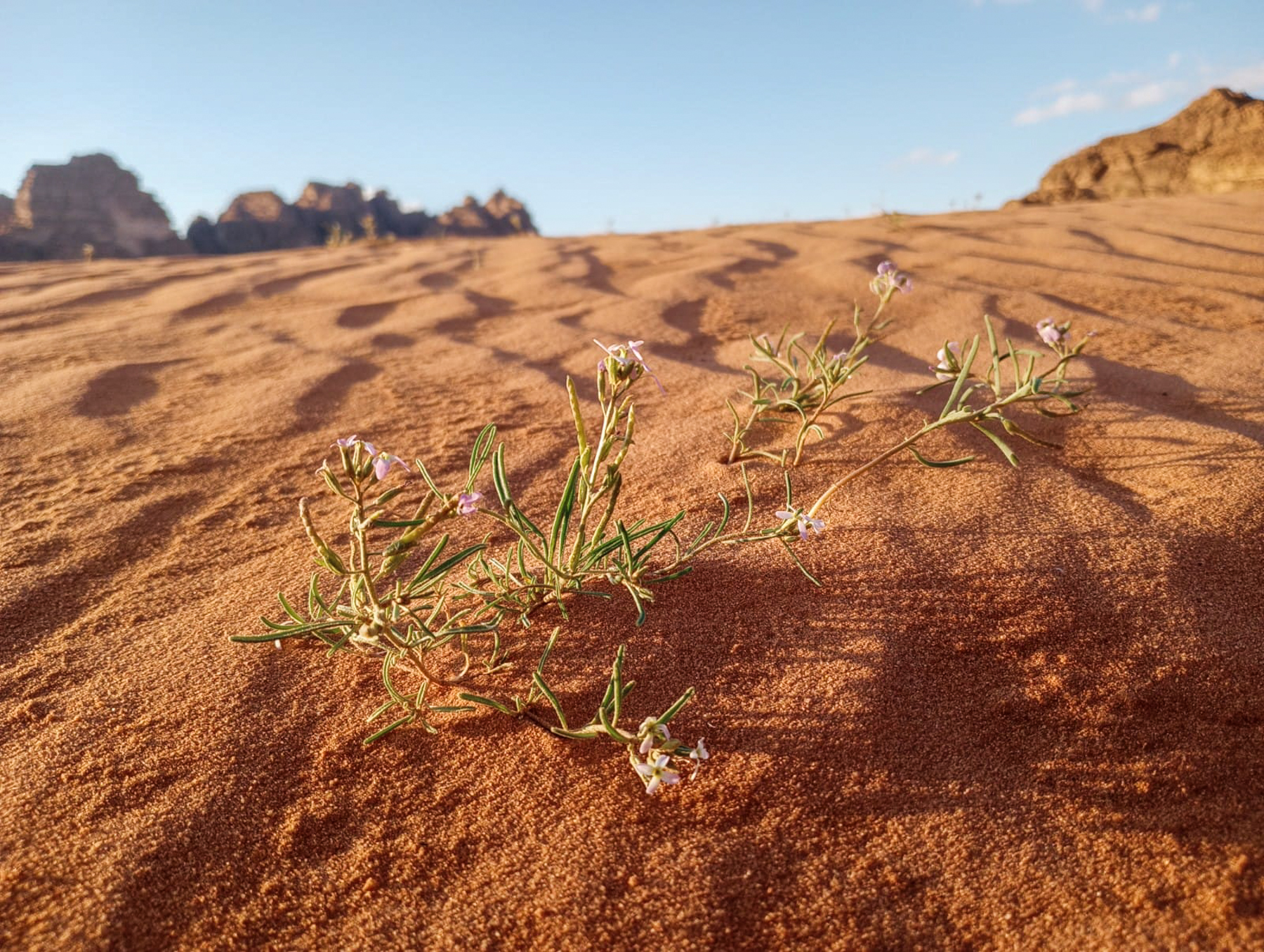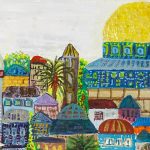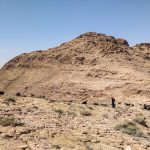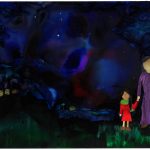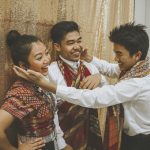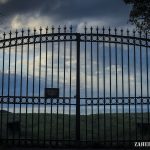Flora of Wadi Rum.
STORY AND PHOTOS BY HEATHER M. SURLS
As a child, one wish always topped Brenda van den Brink’s birthday list: a dog. Young Brenda was smitten with animals. Growing up in Friesland, a Dutch province known for its unique language, Brenda took every chance she got to spend time with them. She lived near an elderly farmer who owned sheep, cows, horses, and chickens. From a young age, she’d gather eggs to save his creaky joints. Once, when he was ill in the hospital, Brenda cared for his larger animals. Though she was never gifted a dog, her family eventually kept birds and she adopted a cat.
More than anything, Brenda longed to become a veterinarian, but her mathematics grades prevented that. (In the Netherlands, girls wanting to study veterinary medicine needed 8 out of 10 in math, while boys could pass with just 7.) But Brenda didn’t let her grades derail her passion. At 15, she volunteered her services to the village veterinarian, who opened a room in his home as a clinic once a week. There she answered phones, filled prescriptions for pets, and even treated basic illnesses and wounds.
Now sitting in her sandy yard on the outskirts of Al-Diseh, a village north of the Wadi Rum Protected Area of southern Jordan, Brenda calls her love for animals one of the red threads in the tapestry of her life. She introduces me to her five happy, yapping dogs, one of them lame, and to the seven horses corralled near us. The horses belong to Abdullah Al-Zwaydeh, her Bedouin colleague with whom she started Jordan Desert Journeys. Together they design custom tours for visitors in Wadi Rum, offering experiences as varied as multi-day horse- and camel-riding treks and traditional weaving workshops with local women.
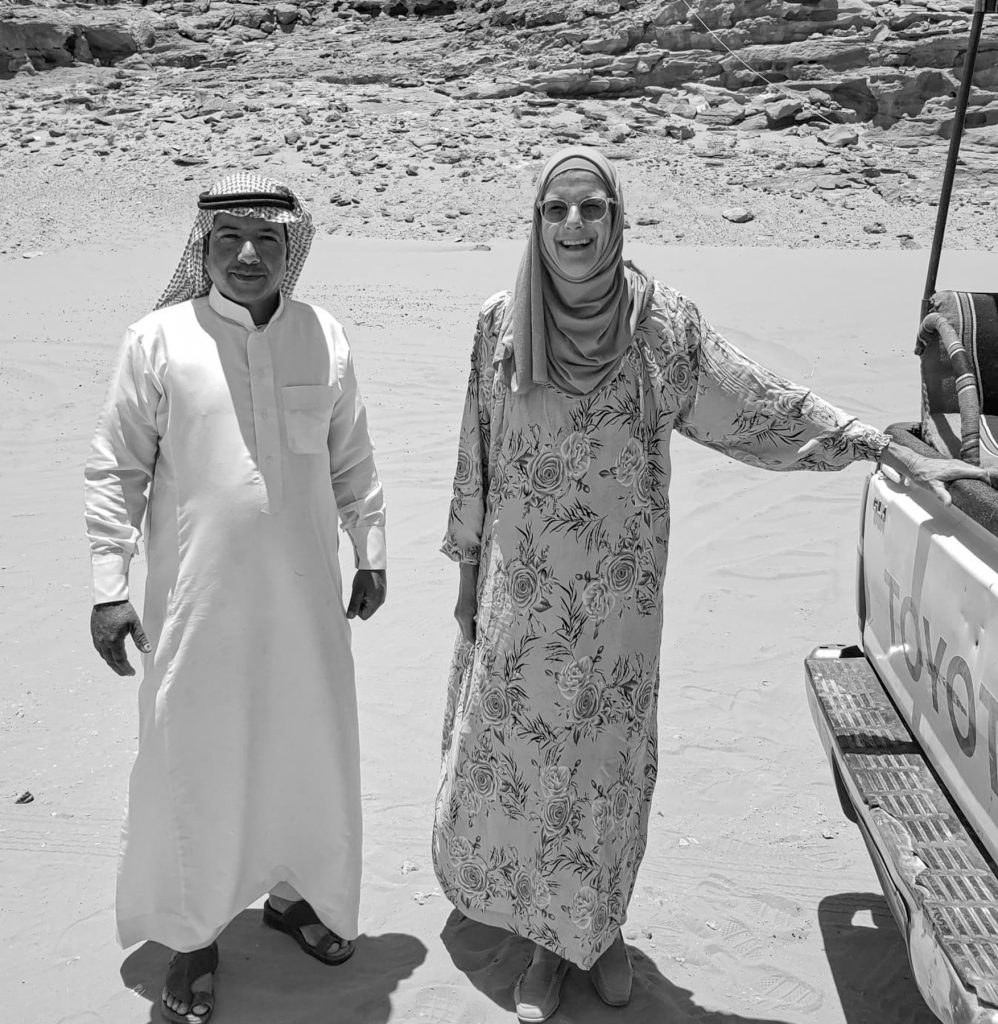
Brenda and her business partner, Abdullah Al-Zwaydeh, operate Jordan Desert Journeys, a boutique company organizing customized adventures for tourists in Jordan’s Wadi Rum.
As we sit on floor cushions in Brenda’s home—a one-story cinderblock building surrounded by vegetables, flowers, and fruit trees—she tells me about the second red thread in her life: an interest in skin care. This is what brought her to Jordan initially. After years of entrepreneurial ventures in the Netherlands that included working in a clothes shop, employment as a pharmacist, managing a drug store, running her own beauty parlor, and training as a massage therapist, Brenda began work as an importer of Dead Sea products. Eager to see where La Cure’s products were made, Brenda visited Jordan in 2003.
“When I went back on the airplane, I was homesick in the opposite way,” she says. Her voice is soft, reflective. She holds a half-eaten falafel sandwich in her hands. “Can you imagine—I have never been homesick in my whole life, but it was like, ‘I have to go back.’”
Brenda returned to Jordan many times—sometimes for a week, sometimes longer, sometimes with her two sons. After visiting Wadi Rum, she felt like she’d come home. “Am I a nomad, Bedouin?” she began to wonder. “Is this the life?” In Quweira, a village on the highway before the turnoff to Wadi Rum, she met a man who wanted to start a tourist camp. Ever the entrepreneur, Brenda recognized an opportunity to invest in an intriguing project and decided to move to Jordan.
When she moved to Quweira in 2009, Brenda couldn’t speak Arabic. Yet for nine months she lived in a tent pitched in the place she and her partner wanted to build their camp. With her finances, Brenda’s business partner began to construct it—but things went sour quickly. Blackmail, sabotage, a court hearing, being taken advantage of—Brenda uses all these words and phrases to describe their business venture that eventually failed.
“Everyone was telling me, ‘Why you don’t come back to the Netherlands?’” Brenda recalls. “But I said, ‘No, I belong here.’ It’s a very big feeling that I knew, here is my life.”
Unfortunately, her painful experiences were far from over. When a Bedouin man from Petra proposed marriage to her, Brenda agreed. But soon she realized that it was about money, not love. For three years, Brenda essentially stayed locked in her home in Petra. At one point, with a knife at her throat, she realized she had to escape. “He tried to destroy everything, everything, everything,” she says. “But he could not destroy me.”
With secret help from the Dutch embassy, Brenda escaped her husband’s home. She remembered a family in Quweira she had met before her marriage. In the days of tent living, she’d sometimes visited Ahmad, his wife, children, and elderly parents to borrow their internet. On the way out of Petra she called him. “One day you told me, ‘There is always a room for you,’” she reminded him. “I’m free—I escaped, I’m in the truck with all my stuff, and I’m on the way. What do you think about this?”
Ahmad and his family welcomed Brenda gladly. She lived with them for two and a half years. She needed time to recover from her misadventures, time to forgive herself and others for the mistakes they’d made. During this time, she became a full-time caretaker for Ahmad’s father, who was around 100 years old. He told her stories and passed on Bedouin wisdom.
Though he was just in his late 30s, Ahmad had an intuition that he would not live long. He asked Brenda to care for his children. Soon after communicating this request, Ahmad died, which put this sheltered period of Brenda’s life in flux. How would she fulfill her promise to Ahmad to care for his family? His brothers vied for her favor, trying to convince her to work with them. But Brenda reminded them of another final request: “It was [Ahmad’s] last wish that I would go to Wadi Rum to work with Abdullah.”
Ahmad called Abdullah the best guide in Wadi Rum. He and Brenda first met in 2010, before she spoke Arabic or he more than a few words of English. Having observed her failed tourist camp and abusive marriage from afar, Abdullah was cautious about working with Brenda at first. But he came from a well-known and respected family in Al-Diseh, so when they embraced her, Brenda found her place in the village. If Jordanians questioned her presence among them, Brenda could refer them to Abdullah. For years she lived in the village under his family’s protection. Abdullah cared for Brenda like a sister, having her give him her rent to give to her landlord so she would not be taken advantage of.
Nine years after founding Jordan Desert Journeys, everyone in Al-Diseh knows Brenda. A tall, slim woman, she dresses in long embroidered dresses and covers her graying blonde hair with solid-colored cotton headscarves. Though raised in a Christian family, Brenda converted after settling in Jordan, attracted by Islam’s pervasive presence in society. “I went from Christianity, but God was still with me,” she says.
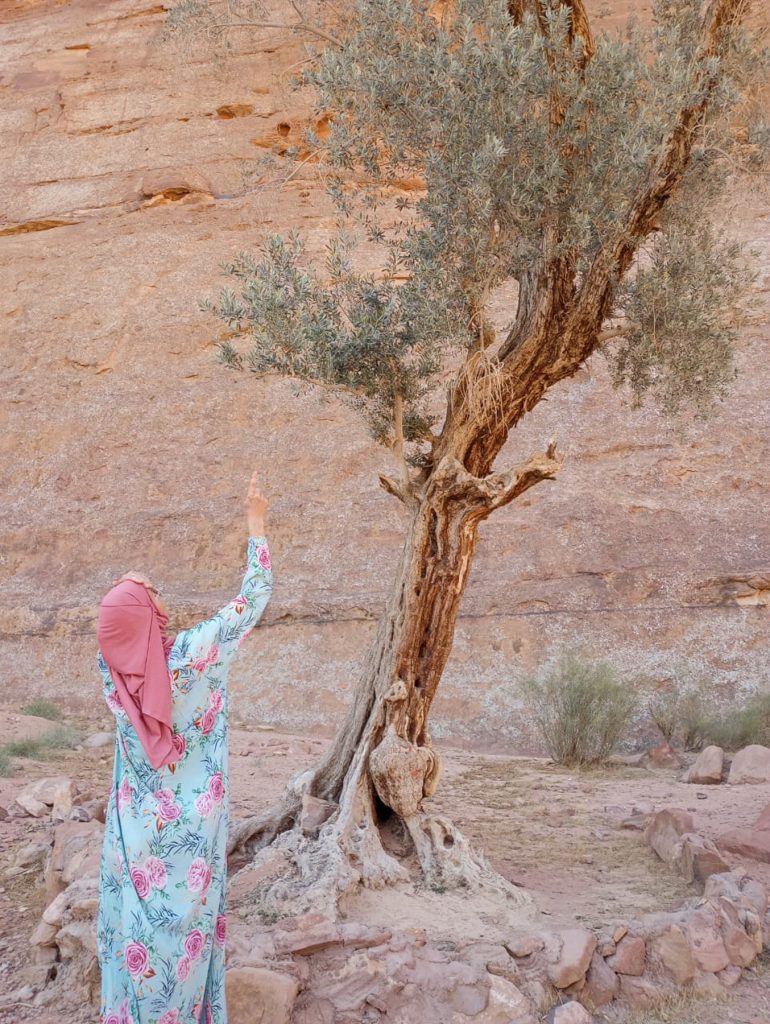
On a jeep tour of Wadi Rum, Brenda points out a rare, centuries-old olive tree living in the desert.
Though she doesn’t own a car, she and Abdullah comfortably share his white manual 4×4 truck, which Brenda expertly navigates from the village to her home across the railroad tracks that once transported pilgrims from Damascus to Mecca. If she needs a ride out of Wadi Rum, she hitchhikes to the highway. Everyone knows who she is.
“I feel I belong to the desert and am happy to be here,” she emailed me when we first made contact. “Attached to the Bedouin life as well as respected in the community—although I cannot ignore my roots in a Western country.”
When Abdullah and his wife designed Brenda’s home, the only western accommodations she requested were a wall-mounted toilet and a bathtub in which to soak on cold nights. Other than this, she appears to have integrated fully into life in Al-Diseh. At first glance, only her blue eyes—half-hidden by warm smiles—betray her Dutch heritage.
She spends her days communicating with tourists and arranging itineraries, jostling over Wadi Rum’s sands to welcome Jordan Desert Journey’s guests, leading horse trips into the desert, acting as interpreter between foreigners and Bedouin when necessary. Within her compound, she keeps a compost pile and has planted olive saplings that she has rigged with electroculture, an agricultural technique that uses electrical currents to accelerate plant growth. Opposite her house stand the concrete frames of three tiny homes. Though still roofless and filled with rubble, Brenda helps me see her dream: temporary homes for digital nomads, a place for volunteers who can assist her with farm work in exchange for housing.
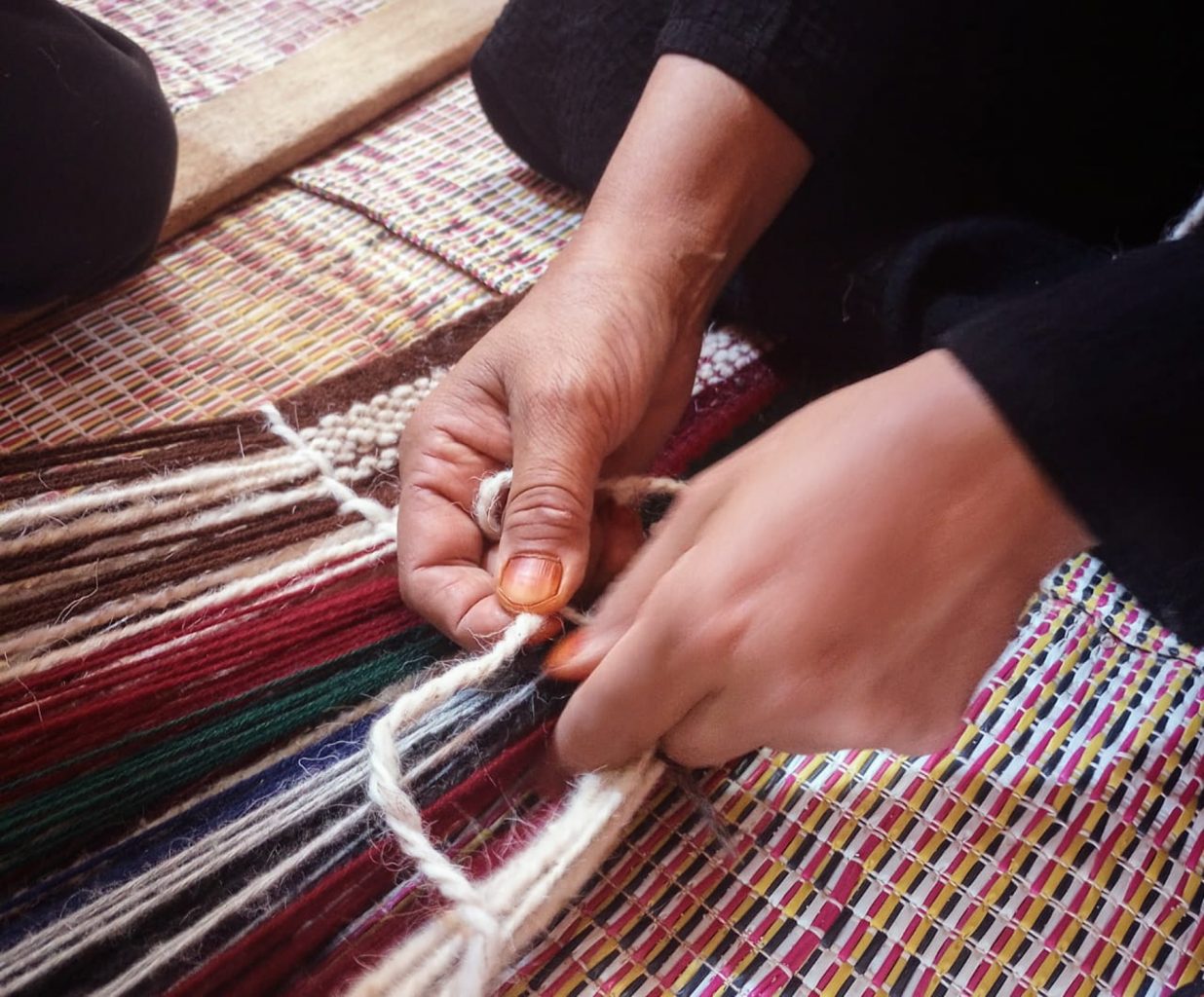
Brenda helps to arrange traditional Bedouin weaving workshops with Um Ayman, a local woman who grew up in a goat-hair tent.
In and out she goes, interacting with the local and foreign communities, then coming home to rejuvenate with reading or knitting, cooking or painting. A small canvas displaying the 99 Arabic names of God sits on an easel near shelves of books in Dutch and English—novels alongside titles on art, Jordanian history, and Eastern medicine. Brenda is still interested in traditional methods of healing. She has studied the plants and herbs the Bedouin historically used for medicine, and occasionally she offers desert-inspired massage treatments to tourists, a nod to her former career. She has healing powers in her hands, she tells me, and thanks God for the people who come to her for treatment.
After all these years in Jordan, Brenda still considers herself a guest, an observer of a culture not her own. While the horses whinny, she describes how she once gave massages to CEOs who had 10,000 employees as well as to hotel housekeeping staff. This attitude that she had in the Netherlands continues to govern her interactions with Jordanians and tourists alike.
“All are people in the end,” she says, “whatever they have to say, whatever they have to pretend, whatever they want. For me, they are people from God and I treat them the same.”
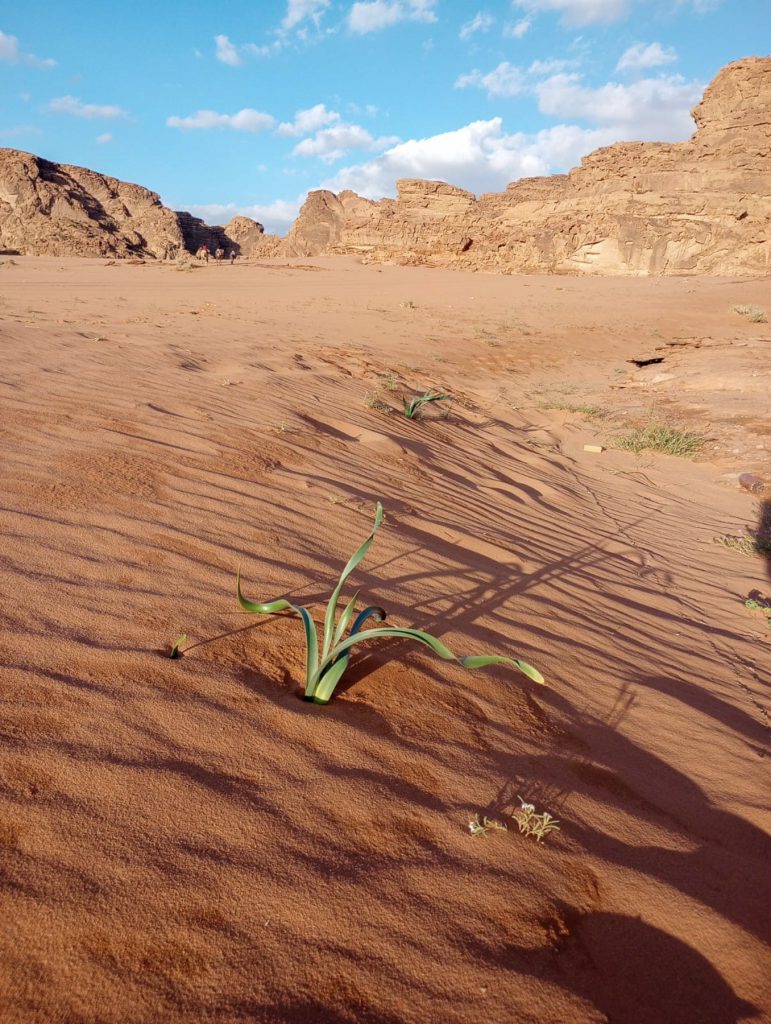
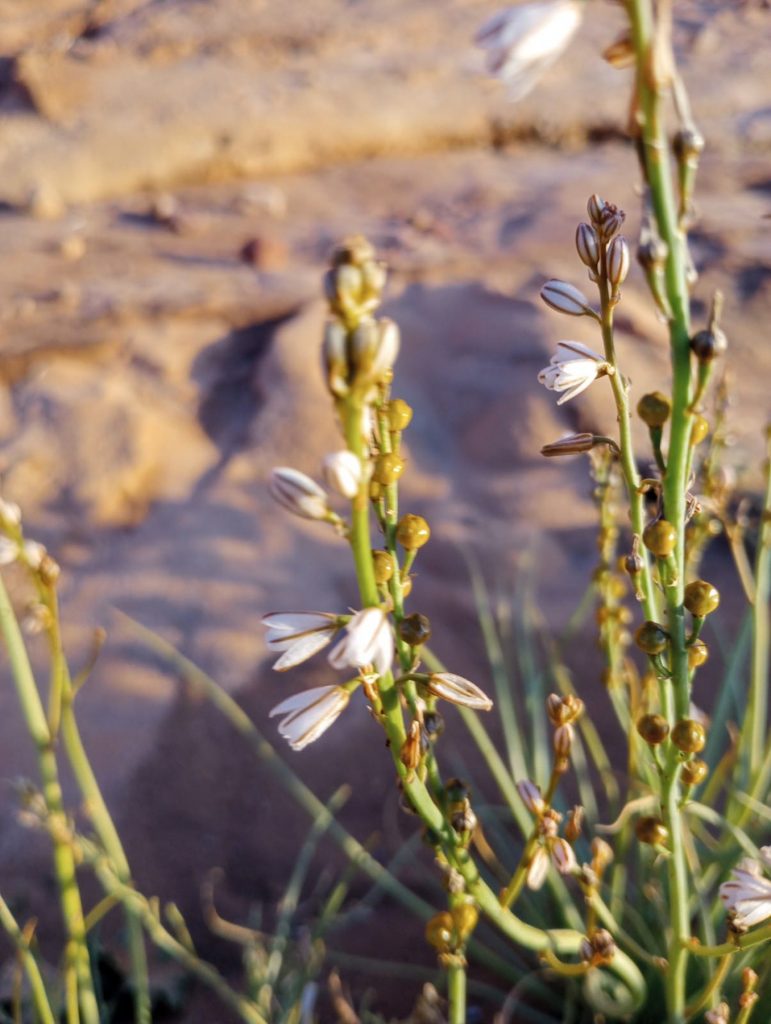
A shorter version of this profile originally appeared in the Jordan News.
In addition to serving as Anthrow Circus's assistant editor and proofreader, Heather Surls regularly contributes stories to the site, drawing inspiration from her relationships and experiences in Amman, Jordan. Her reporting and creative work have also appeared in places like Religion News Service, Christianity Today, Hidden Compass,Catamaran, Brevity, River Teeth, and Nowhere. Her first book, a memoir-in-essays about a decade in the Middle East, releases from Lucid Books in Summer 2025.

